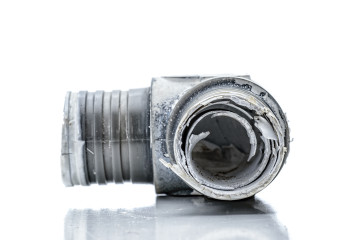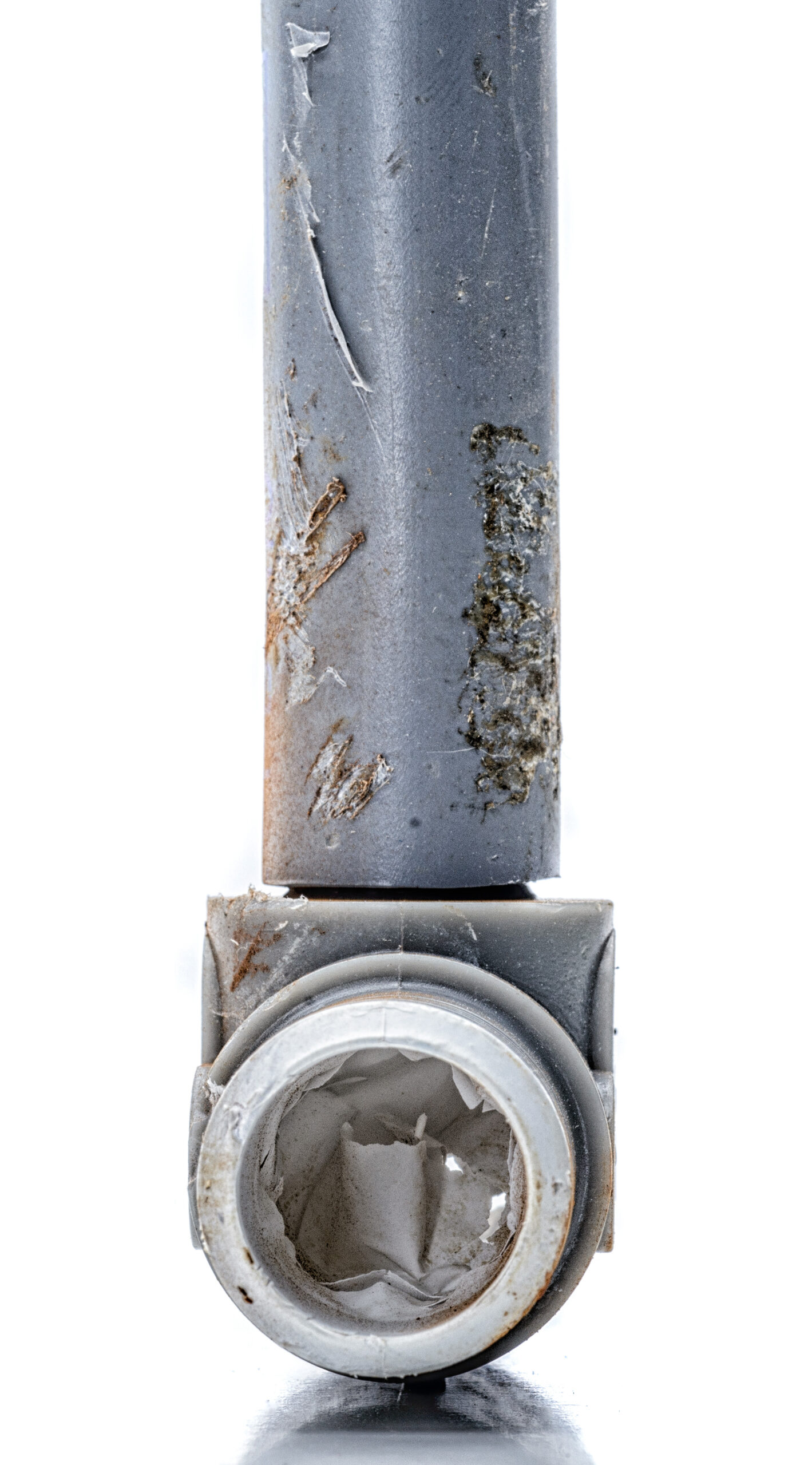The Problem with Polybutylene
If you own or manage a multifamily apartment or condominium community that still has polybutylene domestic water supply piping, it’s past time to pull together funding to replace it. Why?
Polybutylene piping is a double threat.
Threat 1: Polybutylene pipes are defective.
Polybutylene (“poly”) is a plastic resin used in manufacturing pipes and fittings from 1978 to 1996. Poly materials were cheap and quick to install; they were used in up to 10 million low-rise apartment and condominium buildings and single-family homes throughout North America.

Unfortunately, common municipal water additives like chlorine attack poly pipes and fittings, leading to stress fractures and sudden catastrophic failure. That means property damage from flooding, mold infestation from undetected leaks, and higher insurance premiums—or even canceled coverage.
Due to the failures and alleged product defects, manufacturers paid out a billion-dollar settlement in 1995. Only a small percentage of properties containing polybutylene was repiped during the settlement period, leaving millions of building owners and managers to deal with the failing systems.
Threat 2. Polybutylene pipes are at the end of their useful life.
According to studies by Fannie Mae and HUD, domestic water supply systems in multifamily buildings reach the end of their useful life after 30 – 50 years. So, you need to prepare to replace your poly pipes even if they haven’t already caused expensive leaks due to defects.
Based on more than 10 years of SageWater project data (June 2011 – March 2022), we see the Fannie Mae and HUD End Of Useful Life estimates are accurate, with all 275 multifamily properties that we talked with showing domestic pipes that were failing at 34.5 years on average. Of course, the 148 properties we talked with containing poly pipes were failing sooner, at 28.4 years on average.
Request a Free Consultation
More information:
See below for quick tips on determining if your property has polybutylene pipes and a quick summary of the ugly truth about poly pipes.
You can also see:

Does your property have polybutylene pipes?
Current standards do not allow polybutylene piping to be installed. If it exists in a building, it would be in those constructed in the U.S. between 1978 and 1996.
You might be able to find out if you have poly pipes without a plumber. Poly pipes inside your building are typically gray and you can see them by water heaters, sinks, and toilets. In some cases, a combination of poly and copper was used, so you may see copper pipe but polybutylene may be behind your walls, ceilings, and foundations.
Don’t be fooled if you see poly pipes and think they look fine. These pipes degrade from within, making failure impossible to see from the outside and difficult to predict. Whether you have poly or you’re not sure, contact a professional to understand what you should do next.
The Ugly Truth, In Short
The problems caused by poly continue to plague building owners, operators, and, of course, residents.
- Common municipal water additives like chlorine attack poly pipes and fittings. That in combination with water flow pressure leads to interior flaking and peeling, and stress fractures along the length of the pipe.
- Poly plumbing systems often fail suddenly and cause catastrophic damage to a property and the residents’ belongings. Damages that go undetected for a long time may even lead to mold that can harm resident health.
- Most insurers and financing entities require polybutylene pipe replacement as a condition of new commitments, and some mortgage lenders steer clear of poly-piped properties altogether.
- Replacing poly piping is often a sales condition. Typically, real estate brokers red-flag the properties that have it and leave it to buyers and sellers to negotiate the terms of removal.
- A poly domestic water system is a double-threat: the piping is defective and is at the end of its useful life.
